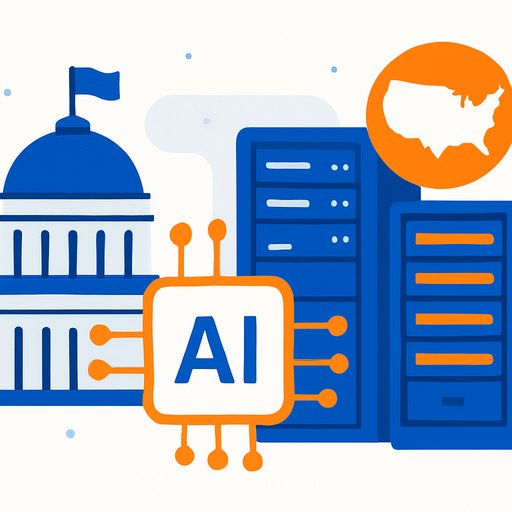Two-thirds of Officials Expect AI to Benefit Government
A recent YouGov survey reveals that a significant majority of civil servants anticipate positive impacts from the government’s plans to deploy artificial intelligence (AI) across Whitehall. The survey polled 101 senior officials and sheds light on both optimism and concerns within the civil service about AI and remote working.
Positive Outlook on AI Adoption
About 65% of respondents believe that adopting AI as outlined by the government will positively affect the civil service in the near future. The strongest support was for AI’s potential to boost productivity, with 71% agreeing it will help in this area.
More than half expect AI to contribute to cost savings (57%) and enhance public service delivery (52%). However, fewer were convinced about AI’s benefits in policy development and decision-making—only 30% saw positive effects there, while 38% were unsure and 24% thought it might worsen those processes.
The Remote Working Effect
The survey also highlights a strong endorsement of remote working. Three-quarters of officials reported a positive impact from working from home on their departments, and 70% felt it benefited government operations overall.
Employee productivity appeared to improve according to 78% of respondents, while 86% said remote work positively affected recruitment and retention, and 85% noted a boost in employee satisfaction.
Public service delivery (58%), policy development and decision-making (50%), and communication and collaboration (50%) were also areas where remote work showed positive effects, though performance monitoring was less clear-cut. Only 28% viewed remote working’s impact on performance monitoring as positive, while 25% saw it as negative and 35% described it as mixed.
Preferred Work-from-Home Policies
The civil service currently mandates 60% in-office attendance, a policy initiated in late 2023 and retained by the current government. Half of the surveyed officials support a flexible approach requiring one or two days in the office per week. Twenty percent preferred three or four days in-office, while none supported a full five-day office mandate. Notably, 30% advocated for unlimited remote work.
Views on Civil Service Performance and Culture
- 59% of officials believe the civil service is performing well, a more positive outlook than that of MPs.
- 53% feel civil servants who underperform do not face adequate consequences.
- 64% agree that work is performed to a high standard.
- 67% say officials generally aim to fulfil ministerial directions and overcome obstacles.
Concerns remain about Whitehall’s culture. Nearly half (47%) think the civil service tends to groupthink and favors orthodox views in hiring and promotions. Forty-five percent see it as risk-averse and closed to new ideas, and 43% rated leadership within Whitehall as poor.
These findings highlight both the promise of AI and remote work as tools for improving government function, and the ongoing challenges around culture and openness to innovation. For civil servants interested in building AI skills relevant to government roles, exploring available courses can be a practical step. Visit Complete AI Training's latest AI courses for options tailored to various skill levels and job functions.
Your membership also unlocks:





